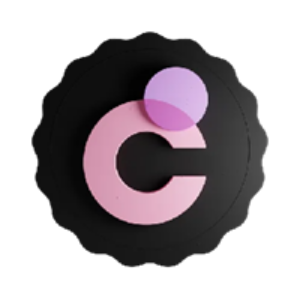- Voltar ao menu
- Voltar ao menuPreços.
- Voltar ao menuPesquisa.
- Voltar ao menu
- Voltar ao menu
- Voltar ao menu
- Voltar ao menu
- Voltar ao menuWebinários.

Chromia
Chromia Conversor de preço
Chromia Informação
Chromia Plataformas suportadas
| CHR | ERC20 | ETH | 0x8a2279d4a90b6fe1c4b30fa660cc9f926797baa2 | 2020-10-04 |
| CHR | BEP20 | BNB | 0xf9cec8d50f6c8ad3fb6dccec577e05aa32b224fe | 2021-04-07 |
Sobre Chromia
Chromia (CHR) é uma plataforma de blockchain de Camada-1 projetada para fornecer uma infraestrutura escalável, amigável para desenvolvedores e descentralizada para aplicativos descentralizados (dApps) e jogos baseados em blockchain. Ao contrário das blockchains tradicionais, a Chromia integra tecnologia de banco de dados relacional em sua infraestrutura de blockchain, permitindo uma gestão de dados de alto desempenho e o manuseio de consultas complexas diretamente na cadeia.
Ao aproveitar a tecnologia de blockchain relacional, a Chromia permite que dApps armazenem e recuperem dados estruturados de forma eficiente, tornando-a particularmente adequada para aplicações que requerem armazenamento e computação em larga escala, como jogos, plataformas de metaverso e soluções empresariais.
- Tecnologia de Blockchain Relacional – Usa uma estrutura semelhante a um banco de dados para processamento de dados e execução de consultas mais eficientes.
- Escalabilidade para dApps e Jogos – Suporta arquitetura multi-chain, onde cada dApp opera em sua própria blockchain dedicada, prevenindo congestionamentos.
- Compatibilidade com EVM – Permite que contratos inteligentes baseados em Ethereum se integrem com a Chromia, possibilitando aplicações cross-chain.
- Modelo de Taxas Flexível – Ao contrário das blockchains tradicionais, a Chromia permite que os desenvolvedores paguem por taxas de transação, permitindo que os usuários interajam com dApps sem a necessidade de pagamentos de gás.
- CHR é o token utilitário nativo usado para pagar por taxas de transação e recursos computacionais na blockchain da Chromia.
- Ao contrário dos modelos tradicionais de taxas de gás, a Chromia permite que desenvolvedores de dApp cubram os custos de transação, proporcionando uma experiência sem taxas para os usuários finais.
- Os desenvolvedores podem implementar modelos de taxas flexíveis, incluindo estruturas baseadas em assinatura, fixas ou freemium, dependendo das necessidades de seu dApp.
- A Chromia emprega um modelo de consenso de Prova de Participação (PoS) e Tolerância a Falhas Bizantinas (BFT), onde operadores de nós validam transações e garantem a segurança da rede.
- Os detentores de CHR podem fazer staking de seus tokens para apoiar validadores da rede e receber recompensas de staking em troca.
- O staking alinha os incentivos econômicos, garantindo segurança e descentralização da rede enquanto recompensa os detentores de longo prazo.
- O CHR é usado para governança, permitindo que os detentores de tokens participem de votações on-chain e propostas de governança.
- A estrutura de governança da rede é projetada para dar aos stakers de CHR influência sobre decisões-chave do protocolo, incluindo atualizações de protocolo, seleção de validadores e desenvolvimento do ecossistema.
- As decisões de governança são executadas por meio do BrainDAO, onde os stakers de CHR votam em propostas estratégicas e influenciam o futuro da blockchain.
- O CHR está integrado em aplicativos de jogos, metaverso e DeFi construídos na Chromia.
- Facilita economias dentro do jogo, execução de contratos inteligentes e interações com NFTs, fornecendo uma infraestrutura robusta para entretenimento baseado em blockchain.
- Jogos populares baseados em blockchain, como My Neighbor Alice, aproveitam a arquitetura de alta velocidade da Chromia para suportar jogabilidade em tempo real e gerenciamento de ativos.